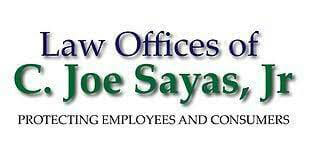Whistleblowing law protects reporting of possible employer misconduct

Charles Erhart worked as an internal auditor for BofI Federal Bank in San Diego, California. The Bank is a federally chartered savings and loan association and its holding company is publicly traded (i.e. under SEC oversight). It provides financing for residential properties and small- to-medium size businesses. It also purchases “specialty finance receivables,” such as payment streams from structured court settlements and lottery winnings.
As a part of the Bank’s Internal Audit Department, Erhart monitors and reports on the Bank’s internal controls. He reported to the Office of the Comptroller of the Currency (“OCC”), the Bank’s primary regulator. Erhart reported directly to the Vice-President of Internal Audit and manager of the Internal Audit Department, who in turn reported to the Senior Vice President of Audit and Compliance (SVP).
During his 18-month tenure, Erhart claimed to have discovered conduct he believed to be wrongful, which he reported to the Bank’s primary regulator. Some of these included Corrupted Structured Settlements & Lottery Audit, Altered Financial Statements, Misleading Response to SEC Subpoena, and Unauthorized Risky Loans.
Erhart claimed that the SVP stated, in the presence of others, “If [Erhart] continues to turn over rocks, eventually he is going to find a snake and he’s going to get bit.” Erhart viewed this statement as a threat and he became concerned for his personal safety. The SVP and the CEO also allegedly stated that Erhart’s “whistleblowing activities were ‘malicious.’” The CEO also allegedly stated to employees that he was going to “bury the BofI whistleblower.”
Erhart also claimed that the SVP, the CEO and others widely publicized false and defamatory statements about Erhart, claiming that he colluded with ‘short sellers’ of the Bank’s stock, and that he was dishonest and incompetent, thereby damaging Erhart’s reputation to the extent that he has “been unable to retain employment.”
Eventually the Bank terminated Erhart. He then filed a lawsuit for whistleblower retaliation under state and federal law. The next day after his filing, The New York Times published an article about the lawsuit’s allegations, which caused the Bank’s stock price to plummet. The Bank quickly countersued Erhart claiming he committed fraud, breached his duty of loyalty, and violated state and federal anti-hacking statutes.
The Bank countered that Erhart was an internal auditor gone rogue, that he was a loose cannon who recklessly handled confidential information and conducted unauthorized investigations. The employer also accused Erhart of appropriating Bank property. The Bank claimed that Erhart was terminated when he failed to return to work after three weeks of FMLA leave.
The California Whistleblower Protection Act specifically protects employees from being retaliated against after reporting to a government agency that their employer has violated the law. The Act also protects employees who report of a suspected violation internally (for instance, to a supervisor within the organization) or externally to “any public body” conducting a hearing or investigation. Employees are protected if they truly believed the conduct they complained about was unlawful, even if it was not. The employer is also prohibited from retaliating against an employee who refuses to participate in activities that violate the law.
After a four-week trial, the jury returned a unanimous verdict in favor of Erhart on all his claims and awarded him $1.5 million in damages. The jury also found that the Bank acted with malice, fraud, or oppression, which entitled Erhart to seek an award of punitive damages. However, because the jury could not agree on whether to award punitive damages, or if so, how much, a mistrial resulted. A retrial on punitive damages only is scheduled to begin on August 23, 2022. The jury also found in favor of Erhart on all the Bank’s counterclaims against him.
The Law Offices of C. Joe Sayas, Jr. welcomes inquiries about this topic. All inquiries are confidential and at no-cost. You can contact the office at (818) 291-0088 or visit www.joesayaslaw.com. [For more than 25 years, C. Joe Sayas, Jr., Esq. successfully recovered wages and other monetary damages for thousands of employees and consumers. He was named Top Labor & Employment Attorney in California by the Daily Journal, consistently selected as Super Lawyer by the Los Angeles Magazine, and is a past Presidential Awardee for Outstanding Filipino Overseas.]

